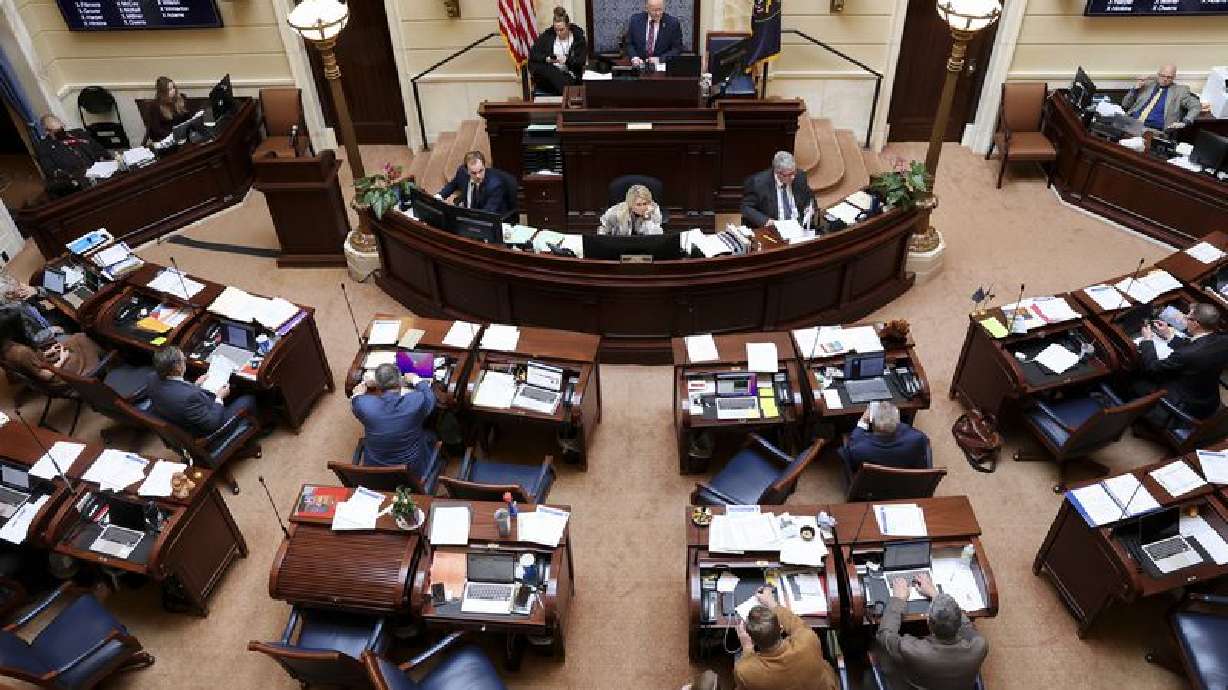Estimated read time: 3-4 minutes
This archived news story is available only for your personal, non-commercial use. Information in the story may be outdated or superseded by additional information. Reading or replaying the story in its archived form does not constitute a republication of the story.
SALT LAKE CITY — A bill to study the use of psychedelic drugs — sometimes called "magic mushrooms" — to treat mental illness has now passed both chambers of the Legislature and awaits action from Gov. Spencer Cox.
Lawmakers also advanced a bill to change expungement fees and a resolution signaling the state's willingness to host a future Olympic Games.
Psychotherapy Drug Task Force
Utah has dealt with a mental health crisis for years, and the state could soon have another tool at its disposal to combat it — psychedelics. That's thanks to HB167, which would establish a Mental Illness Psychotherapy Drug Task Force to study and recommend certain psychedelics to treat patients suffering from mental health issues.
The bill's sponsor, Rep. Brady Brammer, R-Highland, pointed to promising results from studies by Johns Hopkins University into the use of psilocybin to treat depression, post-traumatic stress disorder, anxiety, addiction and existential distress — an acute form of depression that can result after receiving news of a terminal illness.
Brammer said the bill wouldn't legalize psilocybin or other psychedelics, which are designated as Schedule I drugs by the Drug Enforcement Agency — along with cannabis and LSD — but would authorize a task force to weigh the potential benefits with the potential dangers of legalization or decriminalization.
"If this is a tool that can help, we need it in our toolbox, but it needs to be safe and we need to do it in the right way," Brammer told the House Health and Human Services Committee on Feb. 2.
While the science of psychedelics is still in its early stages, there is "tremendous potential" in the treatment, said Dr. Ben Lewis, assistant professor of psychiatry at the Huntsman Mental Health Institute. Lewis joined Brammer's presentation of the bill in committee.
Lewis added that a task force would provide further opportunities to participate in research on psychedelics and add significant findings to the work already being done by Johns Hopkins and other institutes. As opposed to most traditional mental health therapies, psychedelics often don't require repeated daily doses in order to observe results, Lewis said, and some patients report improvement shortly after their first treatment.
Brammer urged fellow representatives to vote for the bill to ensure the state isn't caught "flat-footed," like they were with the legalization of medical marijuana. HB167 passed the Senate 23-1 on Friday, after clearing the House 68-1 earlier this month.

Other legislation
The Senate also approved a resolution "emphasizing a desire and readiness to host a future Olympic and Paralympic Games." SJR10 sponsor Sen. Derek Kitchen, D-Salt Lake City, told Senators on Thursday that the 2002 Winter Olympics "has continued to bless the state of Utah," and said the resolution is a way of keeping "an eye to the future." It encourages Utah to continue investing in infrastructure to be "Games Ready" by 2027, with the goal of hosting the Games in 2030 or 2034. SJR10 passed the Senate 23-0 on Friday.
In an evening House session on Thursday, lawmakers passed HB392, which would waive certain fees for those seeking expungement of prior convictions. Although the state recently enacted a "Clean Slate" law to automatically expunge some convictions, sponsor Rep. Jim Dunnigan, R-Taylorsville, told House colleagues that some people with multiple charges for a single incident can face steep fines which prevent them from gaining employment or state services.
"I believe people should be held responsible for what they do and for their actions, I also believe they should be able to show that they have changed and receive a second chance," Dunnigan said.
HB392 passed the House 61-11 on Thursday night.








